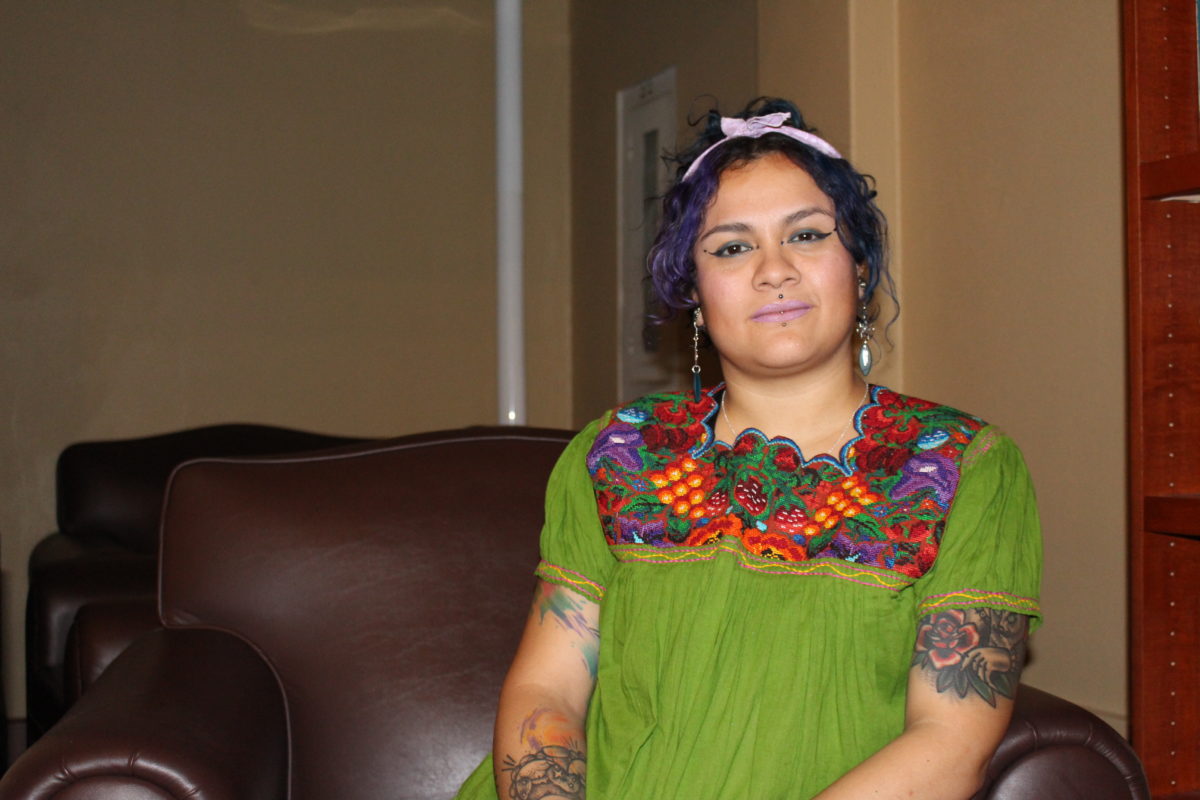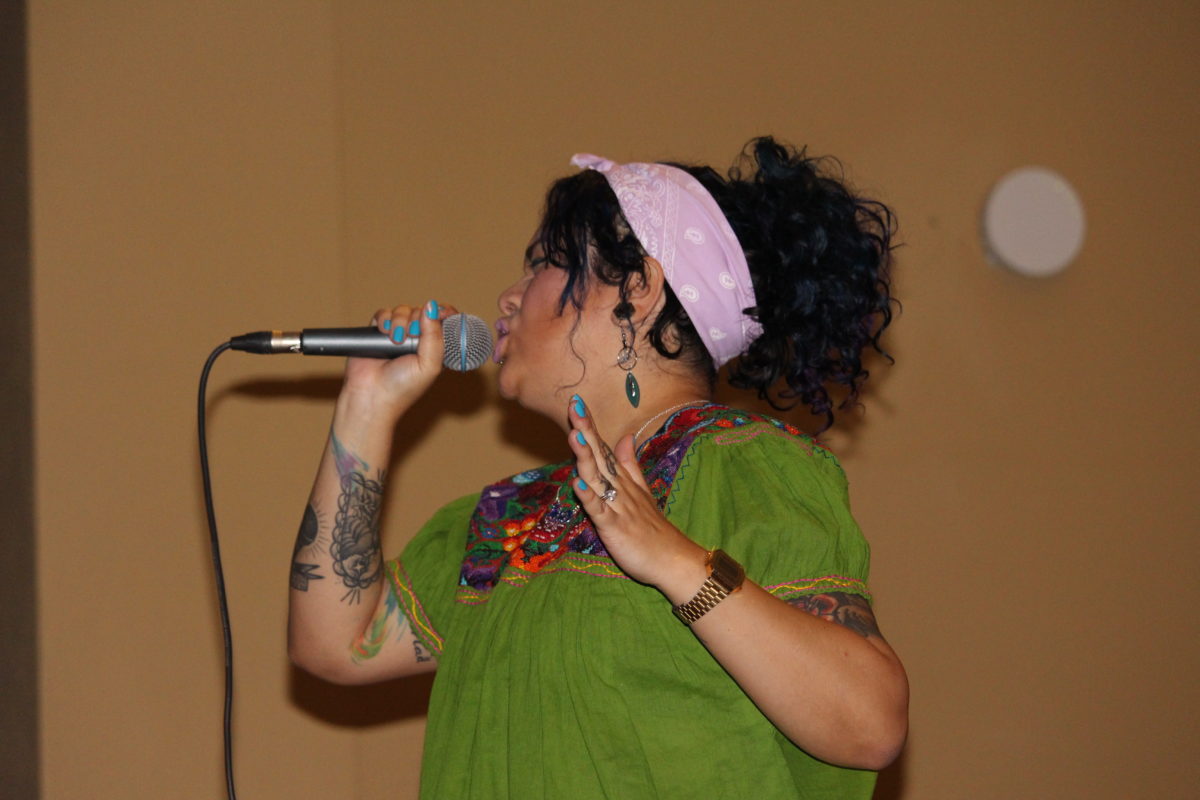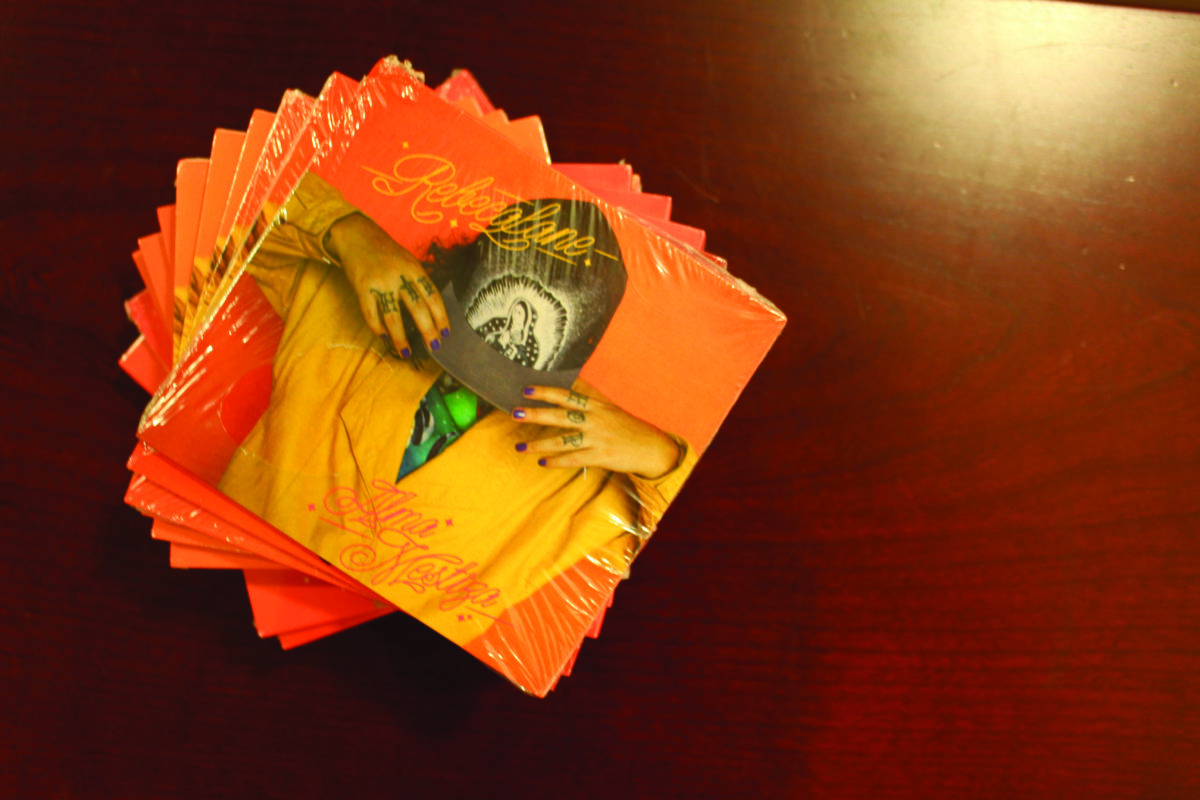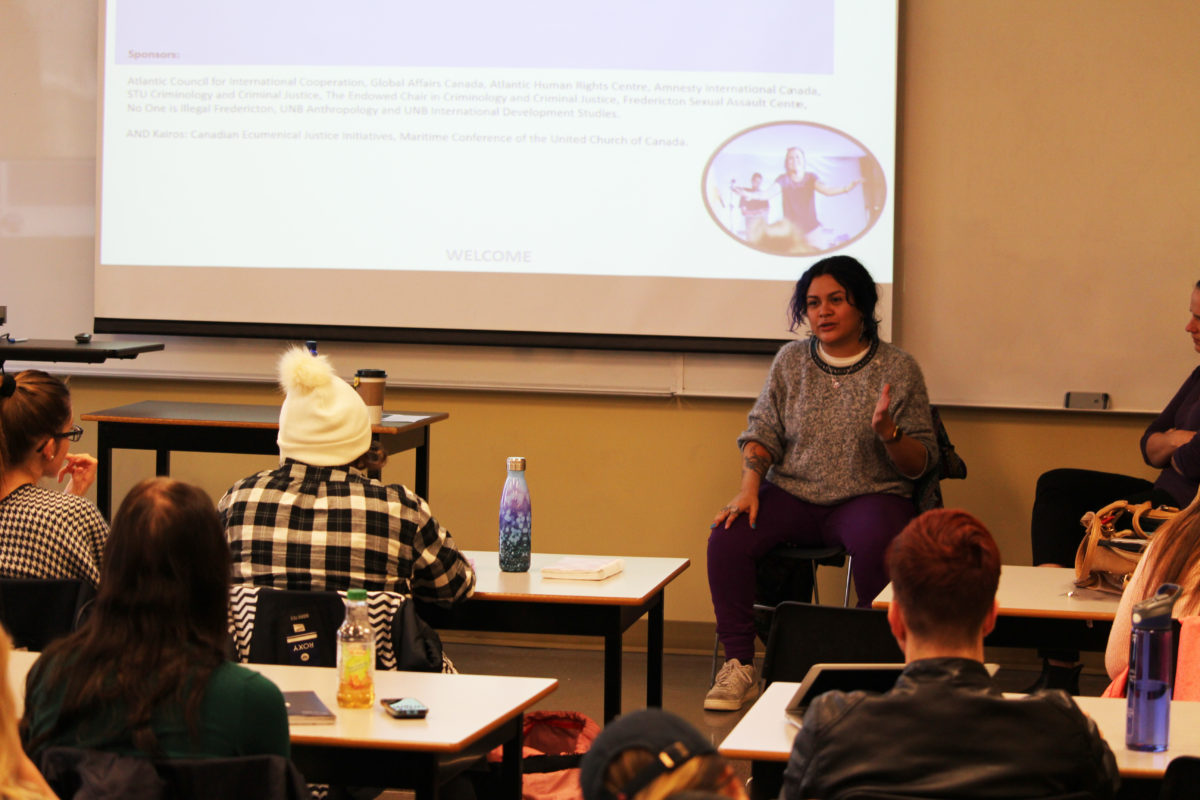
Rebecca Lane, a hip-hop activist, uses her music to promote feminist, anti-violence and anti-racist narratives in Guatemala. She brought her performances and advocacy to St. Thomas University.
She hosted a hip-hop performance for students on Wednesday and held a public talk the following day.
Lane was born and lives in Guatemala. It was there, on March 8 that 41 girls were burned alive in a safe house for troubled youth. According to her, police refused to let them out until many had already died from burns as a punishment for when they protested about the sub-par living conditions many Guatemala youth face several days before.
Examples like this drive her work as an anti-violence activist and feminist.
“You feel like the war never ended,” she said.

Along with advocating for a stop to the violence against women in her country, she advocates for anti-racist tones, a stop to the violence against Indigenous groups and a stop to militarization.
Lane is no stranger to injustice. Her aunt was kidnapped by the army and disappeared in 1981 and the effects were still resonating in her family as she was growing up.
“There was a lot of pain because of the disappearance,” she said.
Despite the pain, her parents made sure she was aware of her environment. They educated her on issues of social justice, inequality and racism. She lived in the city where she said she was more privileged than other kids.
At age 14, she started getting involved in activism. She eventually joined a group that was working towards reclaiming the historic memory of people lost during the war called Hijos.

“We were trying to heal our own histories through art,” she said.
Here, she learned the importance of hip-hop and its culture.
Lane emphasizes hip-hop’s impact on children in Guatemala.
She said Guatemalan youth feel as though there’s no hope for their future, so they turn to gangs and crime. They are told they won’t have decent access to jobs, education or love. But hip-hop gives them hope, Lane said.
“In hip-hop, they get the chance to be artists, to be heard and they get the chance to be a part of a community.”

Lane said this makes all the difference.
Her music also tackles issues of racism.
The name of her tour, Mestizo Soul, means awareness and acknowledgement of your ethnicity.
In their society, they are taught that mixed races are better than pure ones. The mixed races get more education and have more opportunities in Guatemala. But Lane wants people of all races in Guatemala to exist in equality and acceptance.
“We are struggling and fighting against the racism we have toward our brothers and sisters.”
Breaking the Silence, a Canadian non-governmental organization who helps Guatemalans strive for justice, invited Lane to tour eastern Canada in the hopes that she could bring awareness of Guatemala’s struggles and advocate for the situation Canadians have with their Indigenous peoples.
“Canada’s history as a colonized territory has lots of similarities to [Guatemala’s] own experience,” Lane said. By coming here, she hopes to understand and try to participate in Canada’s own healing process with Indigenous people.
During her tour, she hopes to spread the power of activism and strengthen the bond between Guatemala and Canada.
“I was wanting to give some love back.”
